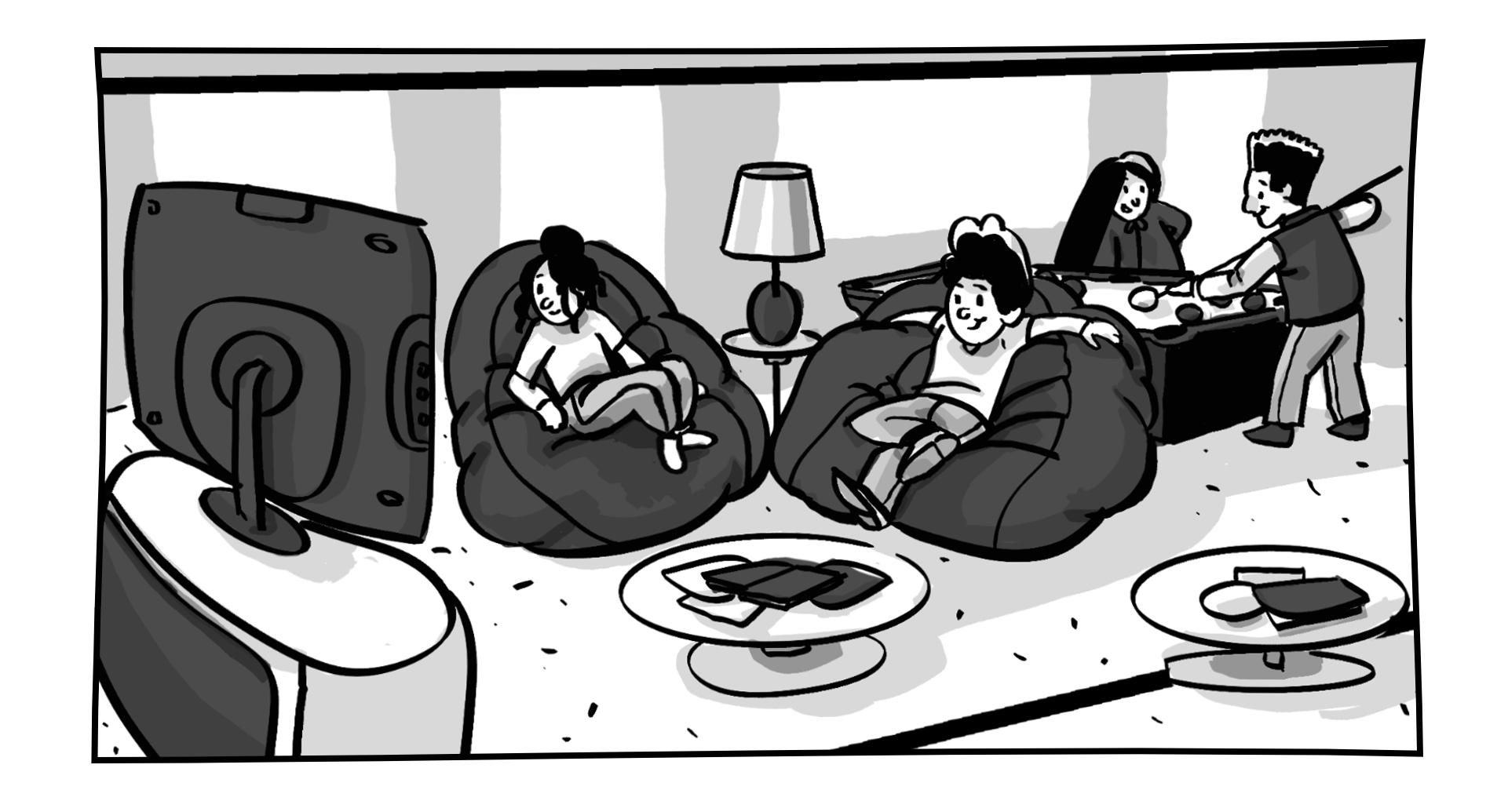Common spaces at GW in buildings like Gelman Library and the Marvin Center are limited, crowded and outdated. Despite new public spaces on campus including the Science and Engineering Hall and the basement of District House, the areas students have to hang out in aside from their residence halls are forced to serve several purposes and cannot appropriately serve students.
While GW has study spaces available, the University lacks communal spaces for students to come together for recreational purposes. With such an intense academic and work culture at GW, it is important for the University to make concerted efforts to encourage students to relax and GW can do that by creating spaces designed for the community – not just studying.

Cartoon by Jekko Syquia
The Marvin Center was renovated last year to create a “living room” environment set with TVs, more comfortable furniture and a conference room. Although it was suggested that the Marvin Center could screen events like the Super Bowl and bring students together, the space does not serve that function because the combination of study-style seating and Panera Bread make the space overcrowded and just another study space.
It may seem like a place for students to relax is unnecessary, but students are more stressed than ever and need a space to unwind on campus. A study from Harvard Medical School found that three out of four students experienced a stressful life events in the last year, while more than 20 percent of students experienced six or more stressful events within the last year. With students increasingly becoming more stressed, the University should work to ease this issue by creating relaxing spaces because of how stress can affect academic performance. In 2016, a study found that perceived stress can negatively impact students academic success.
When I transferred to GW from the University of Maryland, College Park, I missed the lounges on each floor of my residence hall at my previous university. Each lounge had tables with chairs, multiple sofas and white boards that students could use for studying, hanging out with friends or even hosting movie nights. Many of us did not need to worry about finding a spot at the library or finding a private space to relax in, and the space brought people together and built a community in our residence hall. The basement of the student center also had an area called “TerpZone,” which not only had lounge areas, but also a bowling alley, billiard tables, video games and projection screens for students to use. These options offered support for students by giving them a space meant for relaxing instead of studying.
GW formerly had a place designed to bring students together. The Hippodrome was a bowling alley on the fifth floor of the Marvin Center was closed in 2011, but GW should create a space with similar features to build community on campus and tell students they can – and should – take time to have fun during college.
The University would not be alone in offering a space like this, as many of GW’s peer schools already have these options for students. Boston University has a multipurpose room with chairs and couches, as well as a pool table that students can use, that is open 24/7 and guarantees a consistent relaxation space for students. GW could also emulate the Healey Family Student Center at nearby Georgetown University, which includes a TV lounge, cafe, study rooms, a fireplace and even an outdoor terrace with seating.
GW is making a step forward with plans to build a new residence hall that will feature a “multipurpose space” with a TV lounge room and a “Starbucks-style study space,” but GW can also look to emphasize recreation and relaxation in other areas on campus.
Ultimately, as GW looks to improve the student experience, administrators should look beyond academic resources and create spaces on campus dedicated to student well-being where they can fully relax and recharge.
Jina Park, a junior majoring in English, is a Hatchet opinions writer.
Want to respond to this piece? Submit a letter to the editor.

